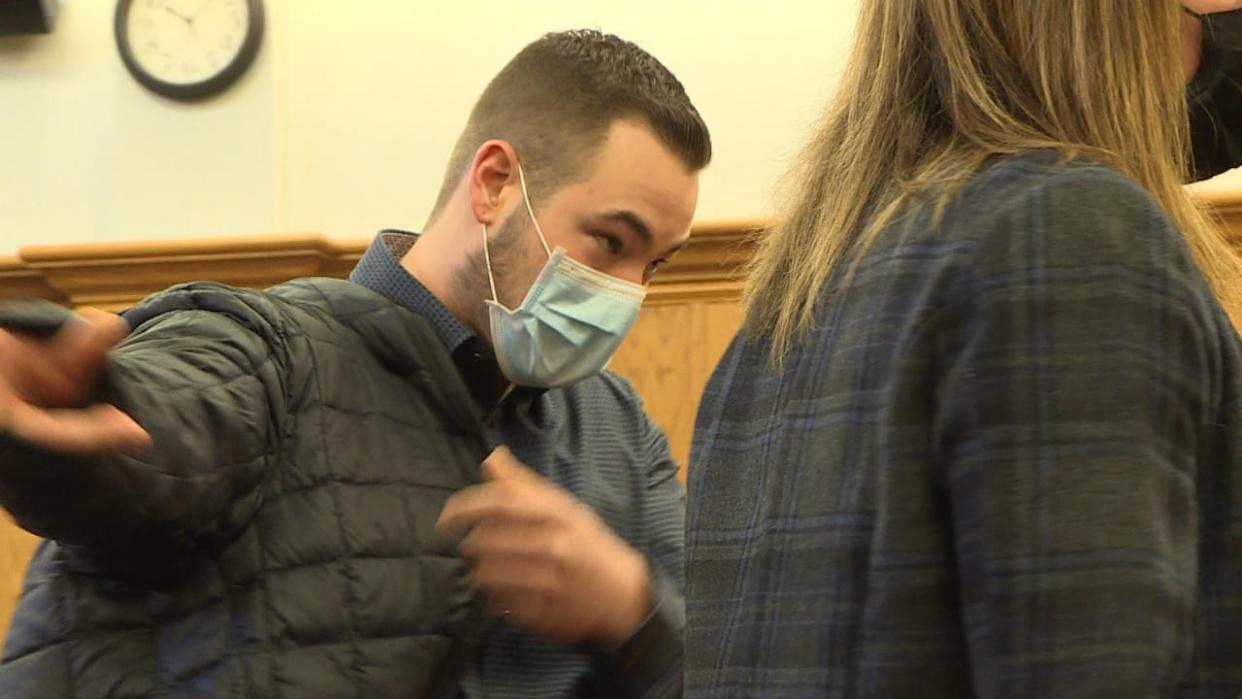Supreme Court of Canada won't hear Villeneuve appeal, paving way for provincial court trial


Nicholas Villeneuve, pictured here in a file photo, will stand trial again in provincial court. (Garrett Barry/CBC)
The Supreme Court of Canada says it will not hear an appeal in the case of a man accused of causing a fatal crash while driving drunk on the Trans-Canada Highway.
Following the court's decision, announced Thursday without comment, the trial of Nicholas Villeneuve will proceed through the Newfoundland and Labrador provincial court system as planned.
Police allege Villeneuve was drunk when he was driving his pickup truck on the Trans-Canada Highway outside Gander in the early morning of July 9, 2019, when he collided with another vehicle.
The other vehicle was carrying John and Sandra Lush of Lewisporte, who died at the scene. Their daughter, Suzanne, suffered serious injuries. Suzanne's boyfriend, Josh Whiteway, was paralyzed from the waist down.
The crash happened during a heavy downpour and, despite the rain, the Lushes' vehicle was engulfed in flames.
But Villeneuve was acquitted of eight charges — four related to dangerous driving and four related to impaired driving — after a trial in 2021.
Before the trial began, Villeneuve's defence filed an application that claimed that police violated his rights under the Canadian Charter of Rights and Freedoms. Lawyer Rosellen Sulliven argued that while under the Charter everyone who is detained by police has the right to consult a lawyer without delay, Villeneuve was, in effect, detained when an officer came into his hospital room and began questioning him.
Sullivan argued any evidence collected during that period — including statements Villeneuve made to the officer, observations made by officers, car and phone records and his blood sample — should be excluded from evidence.
Presiding Judge Mark Linehan said the officer's detainment of Villeneuve started the moment "focused questioning of him about the accident" began, and ruled the evidence as inadmissible.
The acquittal landed about a month later, after a Crown attorney called no evidence in the trial.
But in a decision last May the Court of Appeal ruled Linehan erred by concluding the officer remained at Villeneuve's bedside and engaged in focused and directed questioning.
The appeal judges noted several wrong facts in the trial judge's decision, including when Villeneuve and the officer arrived at hospital.
The panel found there was no evidence the officer took advantage of Villeneuve's vulnerable position in being confined to a hospital bed.
Download our free CBC News app to sign up for push alerts for CBC Newfoundland and Labrador. Click here to visit our landing page.

